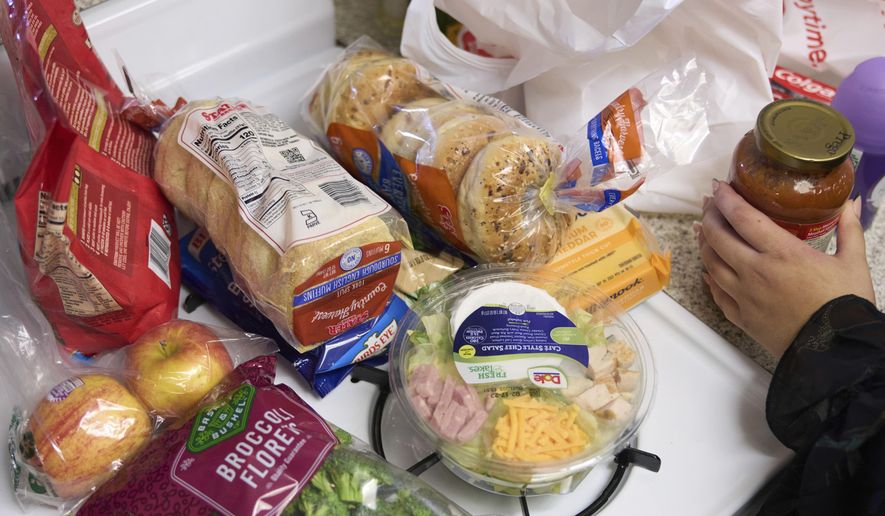OPINION:
U.S. taxpayers spent nearly $65 billion for eight months’ worth of food stamps, according to data compiled by Pew Research Center. Yikes.
Seems like it’d be cheaper to send that money to businesses so they can expand and go on hiring sprees and all those taking the taxpayer dime can buy their own food.
“Through the first eight months of fiscal 2025, the government spent almost $65 billion on benefits alone, 4.7 percent more than during the corresponding period in fiscal 2024,” Pew Research wrote.
“Federal spending on food stamps has grown sharply since the 2008 recession,” Pew wrote.
Those were Obama years — the Barack Obama years of expanding government and opening borders, a punchy bit of policy that had the dramatic effect of lowering wages while increasing tax burdens. There’s a reason Obama was called the food stamp president.
From LifeZette, as posted on the House Committee on Agriculture’s website in 2018: “[T] he Obama administration and many state governments used a variety of loopholes and gimmicks to help weaken work requirements and boost participation [in food stamps] to its highest level in 2013 — more than 47.6 million people. … Republican plans to reform the food stamp program as part of the next farm bill and vociferous opposition from Democrats highlight one of the nation’s biggest philosophical divides over the role of government.”
It’s a divide that continues today.
And it’s not just about the Supplemental Nutrition Assistance Program, or SNAP.
In fiscal 2024, the federal government — the American taxpayer — doled out $874.1 billion for Medicare, $617.5 billion for Medicaid and $38.3 billion on unemployment pay.
A billion here, a billion there. The size of America’s social welfare has become almost meaningless.
But food stamp payouts have soared in recent years — as the U.S. Senate Committee on the Budget wrote in November of 2012, “Under Obama, Food Stamp Growth 75 Times Greater Than Job Creation — and with the hikes in spending have come massive hikes in fraud, as well.
“Overpayment rates climbed from just over 2 percent in 2012 to over 10 percent in 2023 — costing taxpayers approximately $10 billion annually,” the Mercatus Center at George Mason University found in May.
There’s an easy $10 billion in savings.
The other $55 billion already spent this fiscal year on food stamps would have been better appropriated for economic development opportunities; for instance, for entrepreneurial programs to foster small business start-ups in the nation; for example, for grants for companies to hire blue-collar workers to bolster manufacturing in the country. If food stamps were for disabled only — think of the savings.
See the idea here?
Spending money to feed the less fortunate is a great charitable endeavor — for the church. But for government, it’s far less morally commendable and far more socialist.
It’s one thing for individuals to reach into their own pockets and pull out money to help those in need. That’s the way those of faith are supposed to live; that’s the way the world is supposed to operate — those with more give willingly, out of love for God and humanity, to those with less.
It’s another thing entirely for the government to take, take, take from those who work, work, work, to give to those who say they need, but may not really need, and to also give to those who definitely don’t need, but who are just lazy or scammers or thieves.
Give a person a fish, and you feed that person for a day. Teach a person to fish, and you help to feed that person for life.
It makes more sense — and is more American — to take the billions of dollars taxpayers shell out for food stamps and instead, use that money for business growth and economic development.
• Cheryl Chumley can be reached at cchumley@washingtontimes.com or on Twitter, @ckchumley. Listen to her podcast “Bold and Blunt” by clicking HERE. And never miss her column; subscribe to her newsletter and podcast by clicking HERE. Her latest book, “God-Given Or Bust: Defeating Marxism and Saving America With Biblical Truths,” is available by clicking HERE.




Please read our comment policy before commenting.